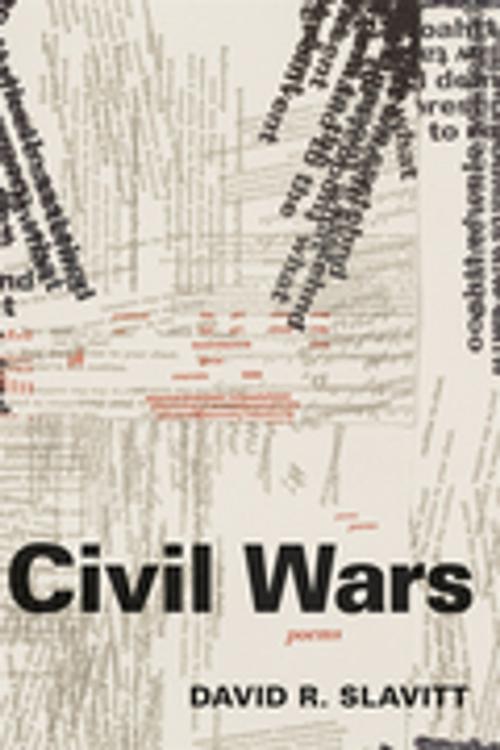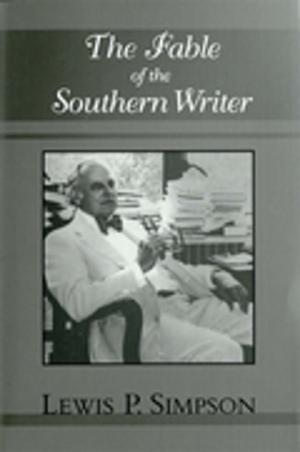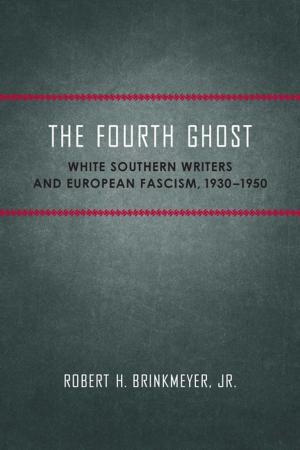| Author: | David R. Slavitt | ISBN: | 9780807151822 |
| Publisher: | LSU Press | Publication: | October 1, 2013 |
| Imprint: | LSU Press | Language: | English |
| Author: | David R. Slavitt |
| ISBN: | 9780807151822 |
| Publisher: | LSU Press |
| Publication: | October 1, 2013 |
| Imprint: | LSU Press |
| Language: | English |
Praise for David R. Slavitt
“Slavitt’s touch is light, and he writes beautifully.... His satire is sharp, and he can be wildly funny.”—New York Times Book Review
“One of America’s most lucid and classical poets.... Slavitt’s attitude is, as one would expect of a Hebrew as well as Greco-Latin classicist, sharply questioning as well as tragic. He is a poet one reads to know more.”—Booklist
“Slavitt is both smart and wise; he’s as well known for his translations of the writers of antiquity as he is for his original work, both poetry and prose.... With a rich sense of humor, a bit of attitude, and a fascination with details, even minutiae, Slavitt tries his hand at new and curious measures and forms as well as seemingly free-range meditations—or, one might say, meanderings.”—Library Journal
The bravura of David R. Slavitt’s first book of poems, published more than fifty years ago, continues to reverberate through his newest collection in a voice matured and roughened by age. Civil Wars conjures the mutterings of old men: meditations—despondent yet playfully witty and bold—on the meaning of life and death, the reasoning for human action or inaction, and misremembered memories. Nothing proves too lofty or too trifling for the poet’s scrutiny. Slavitt’s attention roves from the carnage inflicted by the Achaeans at Troy, to the performances of Borrah Minevich and the Harmonica Rascals, from meditations on Spinoza to the baseball of the New York Yankees. He considers with deliberation all of these subjects and deems them necessary to help create a spiritual connection in our lives. Slavitt encourages contemplation of the world and writing rather than acceptance of the thoughts of the critic, who “comes, austere, a man of authority, / and offers to help” but only dilutes the power of a poem. In this collection, Slavitt also includes translations of Greek, Hebrew, Provençal, French, and Old English poems, including a little-known piece by the mathematician Pierre de Fermat and the Old English epic poem “The Battle of Maldon.”
Praise for David R. Slavitt
“Slavitt’s touch is light, and he writes beautifully.... His satire is sharp, and he can be wildly funny.”—New York Times Book Review
“One of America’s most lucid and classical poets.... Slavitt’s attitude is, as one would expect of a Hebrew as well as Greco-Latin classicist, sharply questioning as well as tragic. He is a poet one reads to know more.”—Booklist
“Slavitt is both smart and wise; he’s as well known for his translations of the writers of antiquity as he is for his original work, both poetry and prose.... With a rich sense of humor, a bit of attitude, and a fascination with details, even minutiae, Slavitt tries his hand at new and curious measures and forms as well as seemingly free-range meditations—or, one might say, meanderings.”—Library Journal
The bravura of David R. Slavitt’s first book of poems, published more than fifty years ago, continues to reverberate through his newest collection in a voice matured and roughened by age. Civil Wars conjures the mutterings of old men: meditations—despondent yet playfully witty and bold—on the meaning of life and death, the reasoning for human action or inaction, and misremembered memories. Nothing proves too lofty or too trifling for the poet’s scrutiny. Slavitt’s attention roves from the carnage inflicted by the Achaeans at Troy, to the performances of Borrah Minevich and the Harmonica Rascals, from meditations on Spinoza to the baseball of the New York Yankees. He considers with deliberation all of these subjects and deems them necessary to help create a spiritual connection in our lives. Slavitt encourages contemplation of the world and writing rather than acceptance of the thoughts of the critic, who “comes, austere, a man of authority, / and offers to help” but only dilutes the power of a poem. In this collection, Slavitt also includes translations of Greek, Hebrew, Provençal, French, and Old English poems, including a little-known piece by the mathematician Pierre de Fermat and the Old English epic poem “The Battle of Maldon.”















